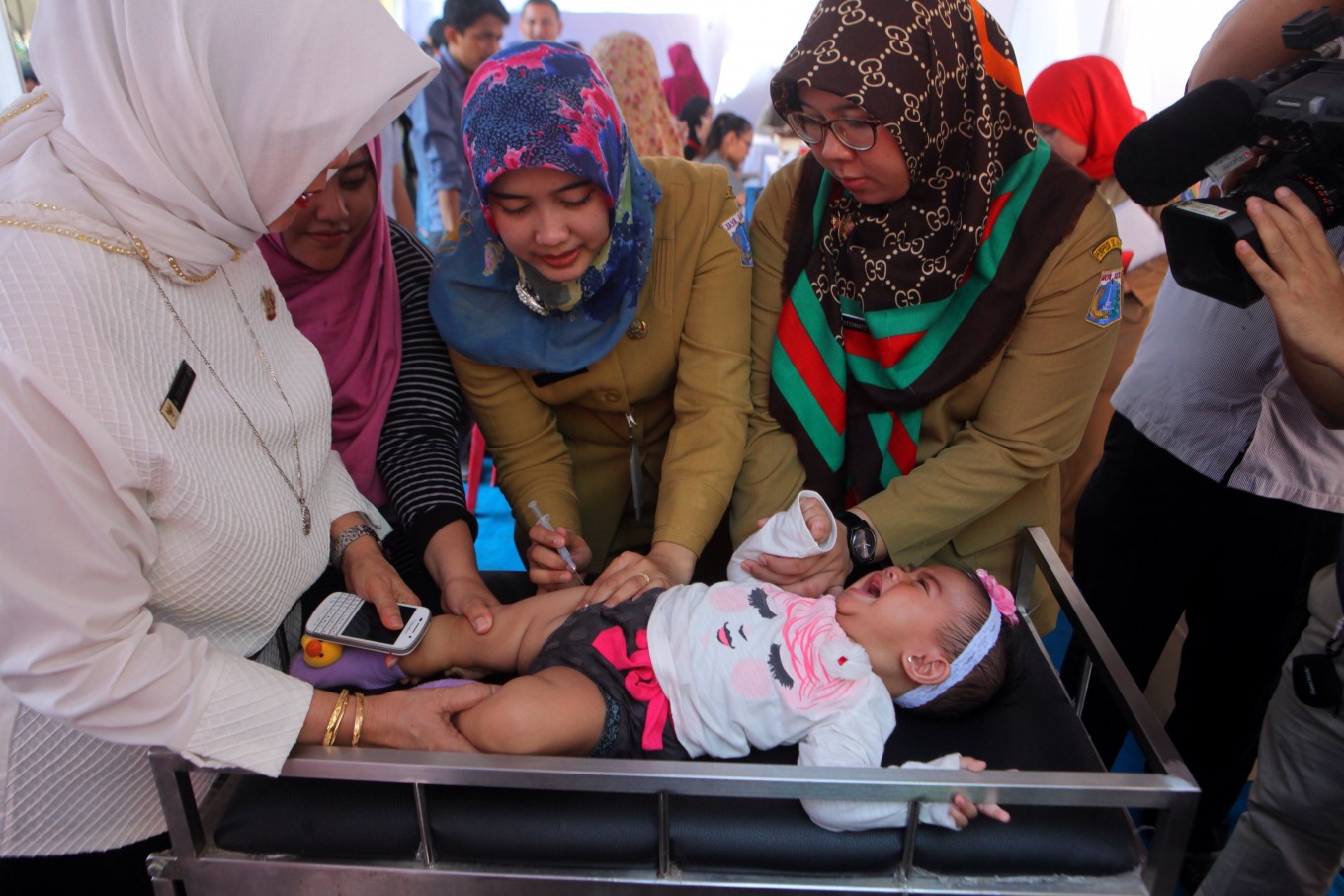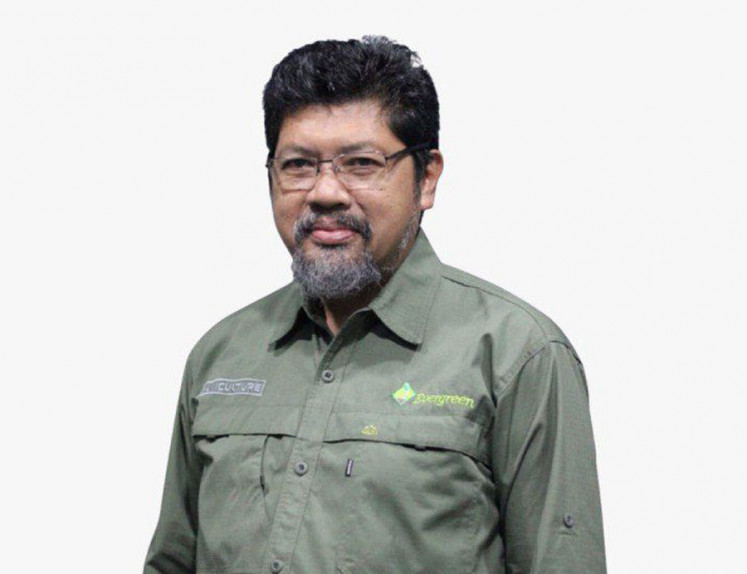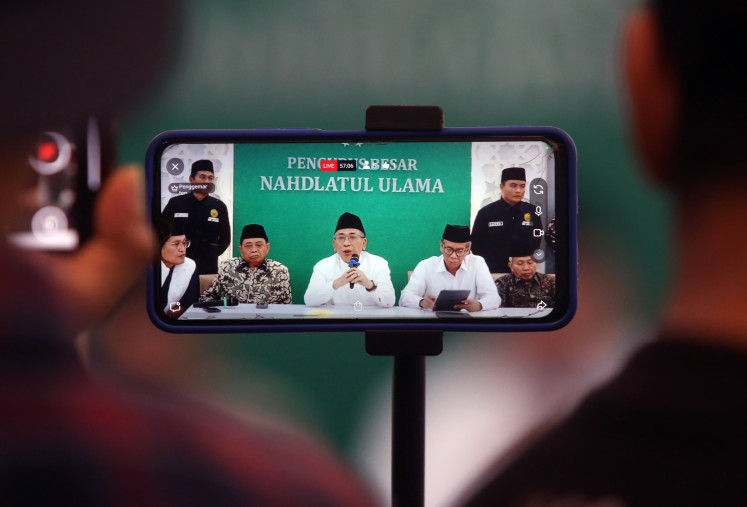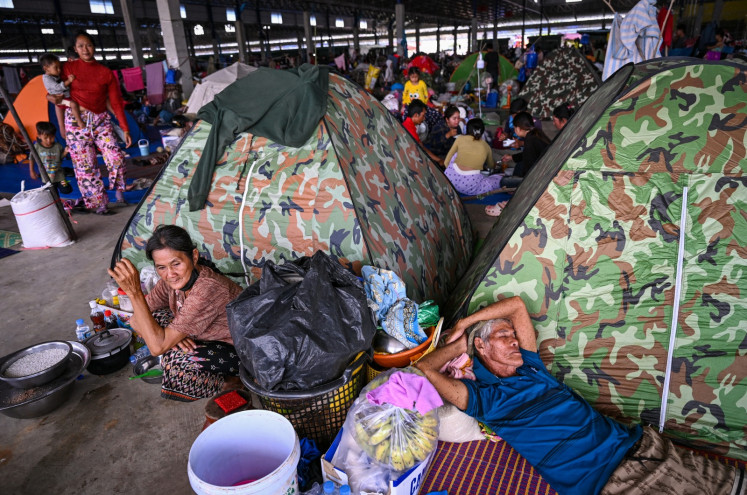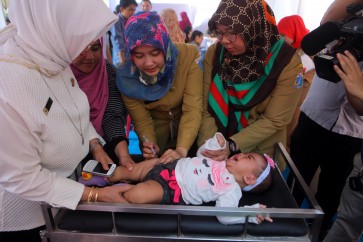Popular Reads
Top Results
Can't find what you're looking for?
View all search resultsPopular Reads
Top Results
Can't find what you're looking for?
View all search resultsNew ways for financing vaccination in Indonesia
Indonesia continues to see its national coverage rates below the global average. Unsurprisingly, Indonesia’s most significant challenge to vaccine delivery is cost.
Change text size
Gift Premium Articles
to Anyone
D
uring autumn last year, the World Health Organization (WHO) announced that a vaccine to prevent dengue fever was available for people across the world aged 9 to 16 years old. This should have been exceptionally welcome news in Indonesia, where dengue has affected more than 120,000 people at a cost of roughly US$323 million annually, according to the Indonesian Technical Advisory Group on Immunization.
Accordingly, last September, Indonesia's Food and Drug Monitoring Agency approved the dengue vaccine, making it widely available in the private market.
Unfortunately, Indonesia continues to see its national coverage rates below the global average. Its vaccine delivery system has been plagued by several major hurdles including a strained public health infrastructure, the lack of a centralized body to manage vaccine procurement and delivery, and mixed public acceptance of immunization following a counterfeit vaccine scandal.
Unsurprisingly, Indonesia’s most significant challenge to vaccine delivery is cost. Although expenses related to the eight compulsory vaccines in the national immunization program are covered by universal health care, vaccines for illnesses that fall outside of that program – such as dengue – must be purchased out-of-pocket, an unaffordable option for many vulnerable, low-income communities.
According to a 2016 WHO report, the government funds 83 percent of the total expenditures for routine vaccinations, with external donors like the Global Alliance for Vaccines and Immunizations (GAVI) stepping in for the rest. However, as Indonesia grows into a middle-income country, it is set to transition away from GAVI support and achieve full self-financing by 2018.
Today, Indonesia experiences the highest number of dengue cases per year in Southeast Asia. This is despite the fact that vaccinations for the disease would cost only $26 million, a mere 8 percent of the current annual cost of the disease.Gaps in funding, particularly with the transition from GAVI support, could lead to even greater disruptions in scheduled immunizations and ever higher rates of vaccine-preventable diseases.
The Milken Institute Asia is examining potential models to address barriers to vaccination delivery. In a workshop organized in July 2016 by the institute, health practitioners discussed financing options that introduce new sources of capital and leverage public sector funding to attract private investment, such as pooled procurement funds, development impact bonds, and conditional cash transfer programs. Full details of the solutions discussed are available in the report, “New Models for Financing Vaccination Programs in Southeast Asia”.

